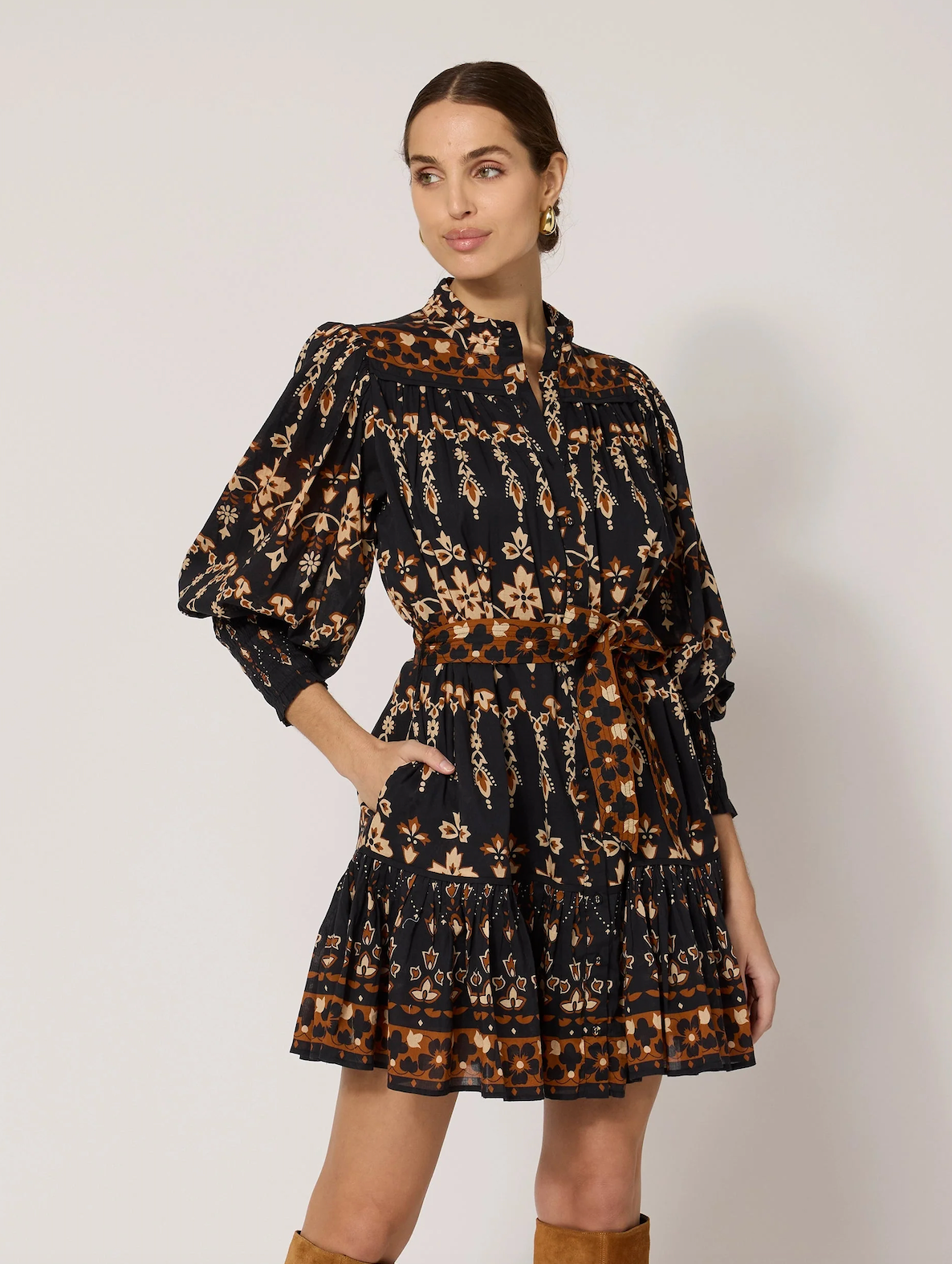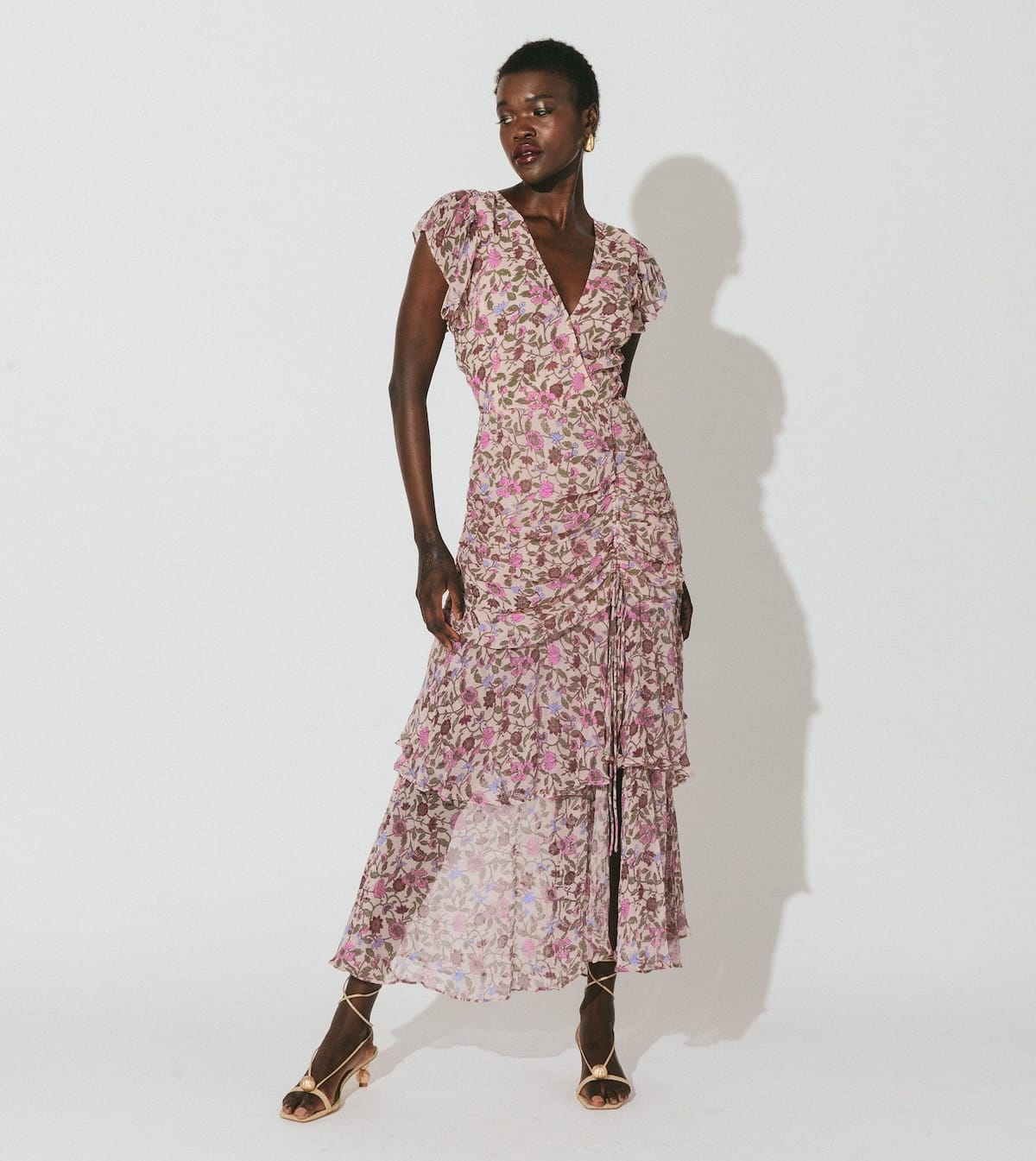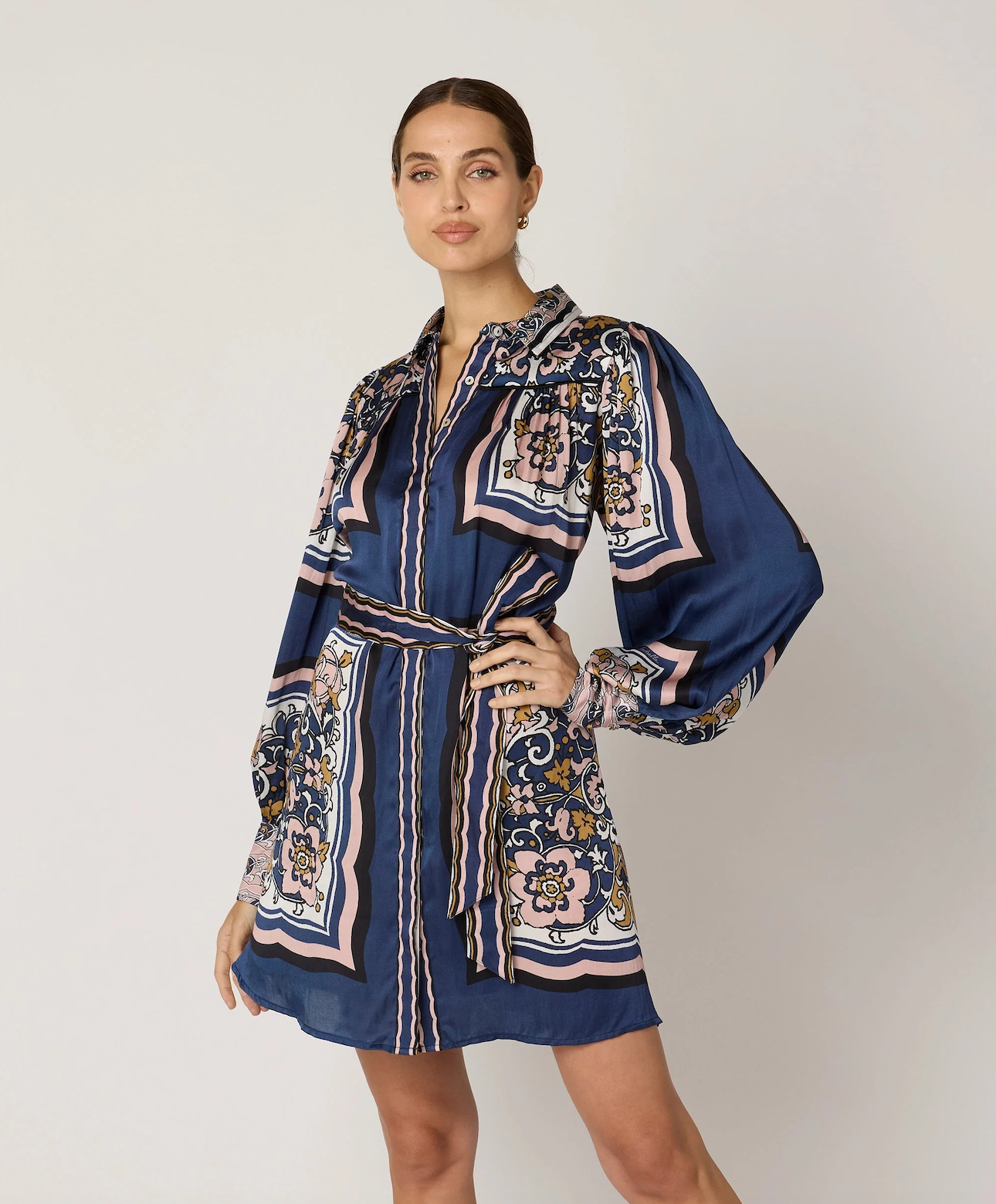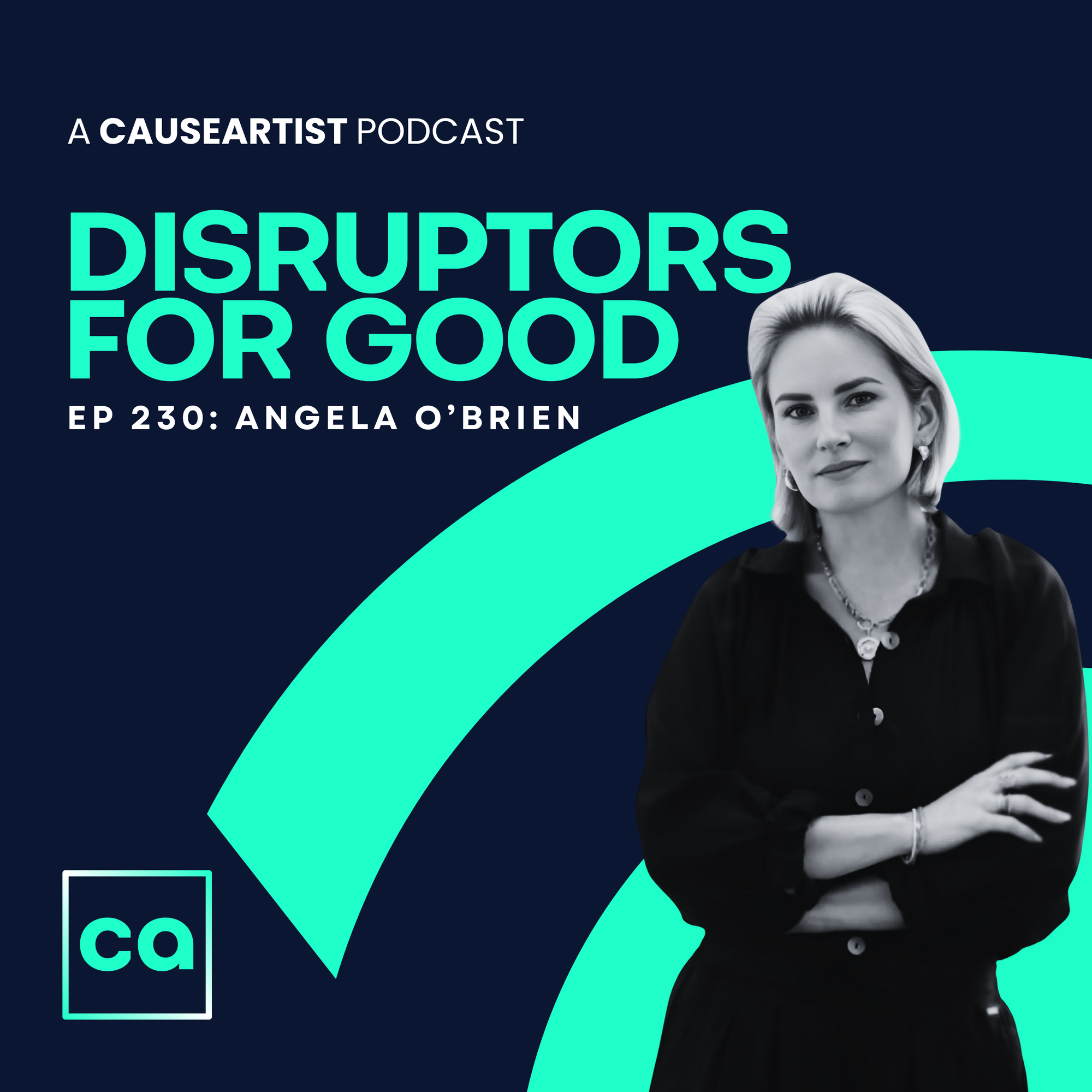In episode 230 of the Disruptors for GOOD podcast, I had the privilege of speaking with Angela O’Brien, founder and creative director of Cleobella, an ethical fashion brand rooted in global inspiration, artisan partnership, and sustainability.
Subscribe on Apple Podcasts
Subscribe on Spotify
Subscribe on Amazon Music
What began as a dream during a year-long adventure through Southeast Asia in 2006 has grown into a globally recognized brand celebrated for its craftsmanship, transparency, and commitment to empowering women.
In our conversation, Angela shares the remarkable 20-year journey behind Cleobella, the brand’s ethos, and how deep, long-standing artisan partnerships have shaped every collection.
From the Runway to the World
Angela’s early career as a model took her across Europe and Japan, but she always felt called to create rather than be the product. That creative spark led her and her husband Jim on a global backpacking trip that would change everything.
In Bali and India, Angela connected with local artisans whose traditions and techniques would inspire the very foundation of Cleobella.
What started with wrap skirts made from recycled saris and hand-tooled leather bags sold at farmer’s markets in Maui has now evolved into a certified B Corp fashion label, recognized for blending luxury design with slow fashion values.
Causeartist BackOffice
Your Mission-Aligned Operations Team
From investor-ready financials to growth strategy, HR, compliance, and custom software—Causeartist BackOffice is your all-in-one operational partner. Built for impact startups, funds, and nonprofits, and powered by our experts.
Let us handle the back office—so you can stay focused on impacting the world.
A Brand Built on Purpose
Cleobella stands for more than beautiful design. It’s a brand built on relationships—some of which have lasted over 15 years. These partnerships have created sustainable income for artisan families in India and Indonesia and preserved heritage techniques like hand block printing, batik dyeing, and intricate leather tooling.

Angela discusses the challenges of building an ethical supply chain, especially while navigating language barriers, cultural differences, and a global pandemic. Yet, she emphasizes that doing things the hard way has always been worth it—because the integrity of Cleobella's mission is non-negotiable.
B Corp and Beyond
Cleobella’s B Corp Certification is not just a milestone, it’s a reflection of the company’s DNA. The brand is committed to using plant-based and renewable fibers, working with GOTS-certified factories, and advocating for transparency in every part of the process.
In the episode, Angela dives into:
- Why sustainability is more than just materials—it’s about people, process, and purpose
- How Cleobella has funded over 10,000 fruit-bearing trees, removed 36,000+ lbs of ocean plastic, and provided sewing machines to female artisans
- The power of trusting your intuition in business
- Her advice to aspiring impact entrepreneurs

Looking Ahead
Today, Cleobella is still family-owned and operated, and Angela remains deeply involved in design and production.
Whether she’s hand-sketching a new collection or visiting artisan partners, her north star remains clear: celebrating femininity, uplifting global communities, and creating ethically made pieces to be cherished for generations.
Listen to the full conversation on episode 230 of Disruptors for GOOD to hear Angela's story of determination, global collaboration, and conscious growth.


Episode Transcript
Grant:
Angela, thank you so much for taking the time today. I’ve been reading about your journey and the Cleobella story, and I’m excited to dive in. It seems like travel has been a core part of the spark that led to this lifelong path with Cleobella. Travel is such an educational experience—it changes you. Before we get into the brand, tell us a bit about that origin story and what inspired it all.
Angela:
I love that question. It was 20 years ago—easy to remember because I’m about to celebrate my 20-year wedding anniversary with my husband and business partner, Jim. We were just kids in our 20s and knew we wanted a life of travel, creativity, and community. Jim’s a surfer, so travel was already part of his lifestyle. After we got married, we quit our jobs and traveled the world for a year. Social media wasn’t really around, but we had a blog and used a service called AirTreks, where you could travel continuously as long as you moved in the same direction.
We fell in love with Bali and wanted to find a way to keep coming back. Then we went to India, where I began importing wrap skirts made from recycled saris. I started selling them at local farmers markets in Hawaii with a folding table and clothes pins. That’s how Cleobella began—very grassroots.
Grant:
So cool. And now it’s grown into something beautiful and impactful. For those who may not be familiar, give us the full scope of what Cleobella does—both as a business and in terms of its social and economic impact.
Angela:
Cleobella is named after my mom, Cleobell, and her grandmother. My grandfather was in the Navy and met my grandmother in Northern Ireland. So the name represents strong women, and that’s what this business is about—supporting women.
When we were traveling through India, I saw women working incredibly hard, often in difficult conditions, and I felt connected to them. Our brand is built around job creation and consistent, sustainable partnerships with artisans. Some of our artisan partners manage 20-person teams; others manage 200. One woman told me, “If you teach a man to fish, he’ll eat for a lifetime.” That philosophy has stuck with me. It’s about creating lasting impact, not just one-off orders.
We’ve built our business on slow, consistent growth. We work with over 500 specialty retailers and larger partners like Nordstrom, Anthropologie, Shopbop, and Revolve. Our e-commerce platform has also grown, allowing us to test and create new designs.
Grant:
It’s amazing that you’ve done all this without outside investment. What was the early digital experience like—your first website versus today?
Angela:
Oh my gosh, it was so embarrassing! I’m definitely more right-brain creative than tech-savvy. I had to bring in help—I flew my cousin to Maui to help me build the site. It was all bootstrapped. After selling at farmers markets in Maui, we moved back to California when the 2007 crash hit. In 2008, I put together a line sheet and rented space at a showroom that carried Havaianas, which brought in great foot traffic.
That led to a two-year period where I worked with that showroom, learned the business, and grew Cleobella through wholesale orders. I'd spend months in Bali designing and overseeing production, then return to ship orders. It was a one-woman show for a long time until I could finally hire an assistant.
Grant:
Let’s talk about the artisans—the true talent behind the brand. What’s that evolution looked like over the past 20 years?
Angela:
Many of our partners are families we’ve worked with since the beginning. One of our first leather partners now has his son running the business. Another artisan we met at a market in Bali now oversees a team making our crochet and woven goods. We helped one of our leather partners build a factory next to his home. It’s been beautiful to watch their families and businesses grow alongside Cleobella.
We try to highlight their work and share their stories as much as possible. I always wish I could take everyone to Bali and India to see the artistry and the people behind our products. They’re true artists.
Grant:
You’ve grown into partnerships with major retailers. What’s it like to pitch your brand, especially in the early days?
Angela:
I actually used to be a model, which helped me overcome shyness. It also helped me get used to hearing “no” and learning to try again. Over time, I realized I didn’t want to be the brand—I wanted to build the brand.
The key has always been delivering quality, sustainable products on time, and maintaining integrity in everything we do. We’ve become known for being reliable partners, which helps a lot when pitching to both small boutiques and large retailers.
Grant:
Sustainability and ethical production are core to your business. How have you managed to scale those values as the business grows?
Angela:
It’s definitely not easy. For me, it starts with design and the fibers we choose. I’m very cautious about synthetics—less than 15% of our materials are synthetic, and those are mainly in categories like swimwear. We work only with trusted factory partners, and we conduct regular audits.
Sourcing in Bali is more expensive and less straightforward than India, but we continue to work with our partners there because of our relationships. It’s not about margins—it’s about values. When we became B Corp certified, we underwent a two-year audit that touched everything—from our lighting to our insurance plans.
Grant:
I know the B Corp journey can be a heavy lift for small brands. But it seems like you’re doing all the right things, even before the certification.
Angela:
Yeah, it’s intense. My husband led the charge, and we worked with consultants to meet the requirements. And honestly, it’s hard to quantify the value of long-term relationships with artisans. That doesn’t always show up in a scorecard. But we do it because we care.
We believe that business can be a force for good—down to the smallest decisions, like using both sides of the paper in our office. Our whole team thinks that way, and we’ve grown slowly and intentionally to keep that culture strong.
Grant:
Now with tariffs and global supply chain shifts, how are you managing the current economic uncertainty?
Angela:
We’re incredibly lucky not to manufacture in China—that was a conscious decision from the start. Most of our production is in India, and while we’re facing nearly 26% tariffs there, we’ve tried not to raise prices on customers. In Bali, it’s even tougher—tariffs are nearly 50%.
Still, we’re navigating it with gratitude and creativity. We just got back from a month in Bali, working directly with our partners to plan for the future.
Grant:
What advice would you give to aspiring social entrepreneurs looking to build meaningful brands?
Angela:
You have to love it. This work is hard. You need to be aligned with your purpose and values. I always tell my kids: Find what lights you up and chase that—not the money, but the freedom to create something meaningful.
For me, Cleobella is about energy—what we give and what we receive. I hope when someone wears a Cleobella piece, they feel that energy and are inspired to pursue their own purpose.
Grant:
Last question: What does the future look like for Cleobella?
Angela:
We want to continue building a team that loves working here. Growth matters because it creates more jobs and more impact. But we want that growth to be sustainable and human-centered.








